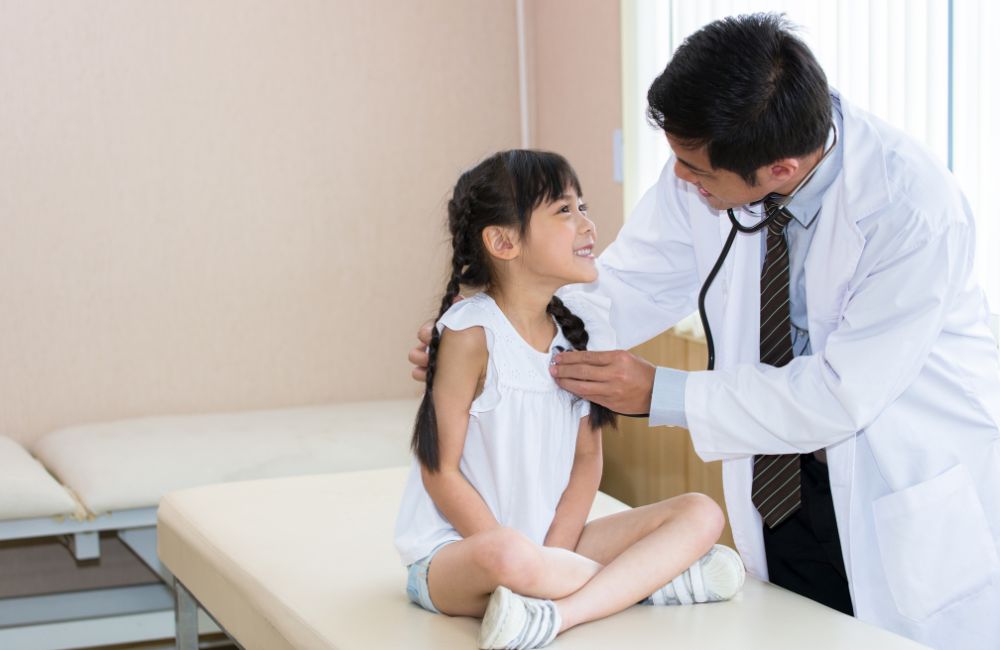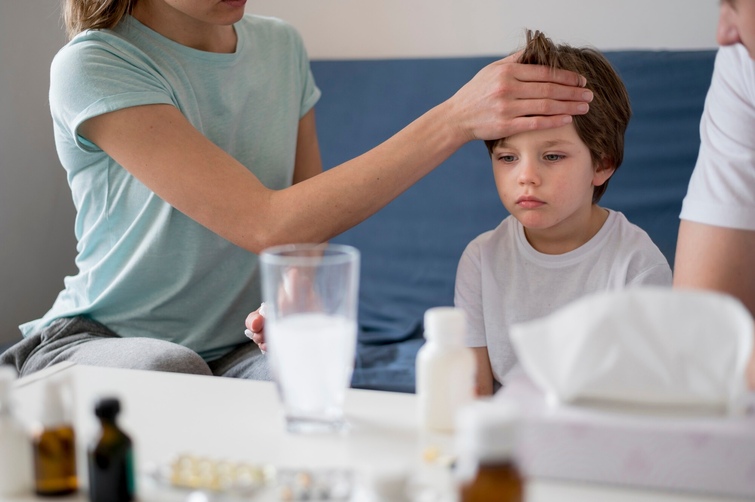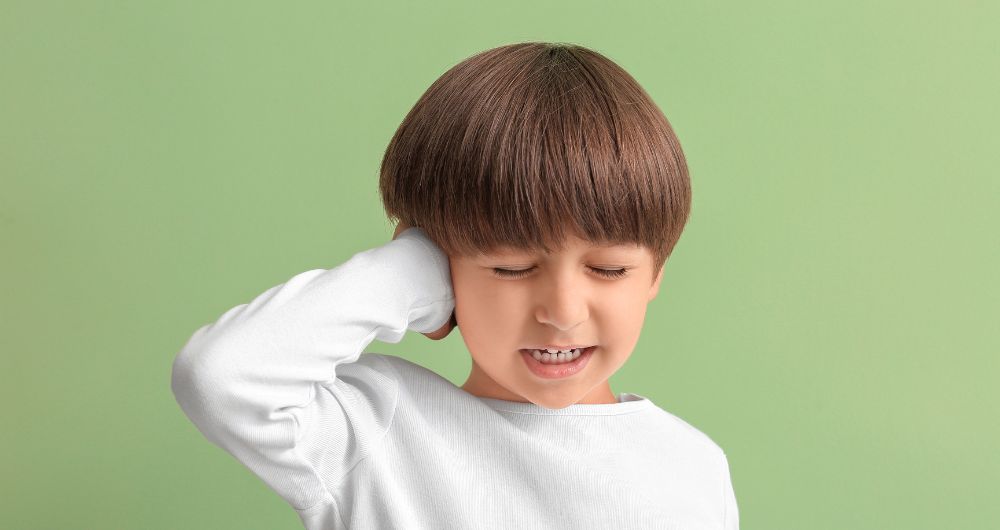
Children’s headaches are a common concern for many parents. While most headaches are not a sign of serious illness, they can be distressing and disruptive for the child and the family. Understanding when to treat headaches at home and when to seek help from urgent care in Southington, CT, is crucial. Urgent care centers in Southington, CT, are well-equipped to handle various health issues, including severe headaches in children.
Headaches in children can be caused by a variety of factors. Identifying the type of headache is the first step in determining the appropriate treatment before seeking help from an urgent care in Southington, CT.
Tension headaches are the most common type of headache in children, which occurs to 10% to 24% of children and adolescents. They are usually characterized by a dull, aching pain on both sides of the head. Tension headaches can be caused by:
Migraines are intense headaches that can cause throbbing pain, nausea, and sensitivity to light and sound. Up to 18% of patients in pediatric emergency rooms present with migraine-related issues.Migraines can be triggered by various factors, including:
Sinus headaches occur when the sinuses become inflamed, often due to an infection or allergies. These headaches are typically felt in the forehead, cheeks, and around the eyes and may be accompanied by:
Cluster headaches are rare in children but can cause severe, recurring pain on one side of the head, often around the eye. These headaches can occur in clusters over weeks or months, followed by periods of remission. Key features include:
Other potential causes of headaches in children include:
Many children’s headaches can be managed effectively with home remedies and treatments. Here are some strategies to consider:
Encourage your child to rest in a quiet, dark room. Relaxation techniques can help reduce headache symptoms. These include:
Dehydration is a common cause of headaches. Ensure your child drinks plenty of water throughout the day. Additionally:
Over-the-counter medications such as acetaminophen (Tylenol) and ibuprofen (Advil) can provide relief for mild to moderate headaches. Always follow the dosage instructions and consult with a healthcare provider if you have any concerns. It’s also important to:
Applying a cold or warm compress to the forehead or the back of the neck can help alleviate headache pain. Use:
Ensure your child has a comfortable and quiet environment to rest. This includes:

Taking preventative measures can help reduce the frequency and severity of headaches in children. Here are some tips to consider:
A consistent sleep schedule is crucial for preventing headaches. Ensure your child gets the recommended amount of sleep for their age and maintains a regular bedtime and wake-up time. To help establish a good routine:
A balanced diet provides essential nutrients that can help prevent headaches. Encourage your child to eat a variety of foods, including:
Regular physical activity can help reduce stress and improve overall health, which can help prevent headaches. Encourage your child to engage in physical activities they enjoy, such as:
Stress and anxiety are common triggers for headaches. Teach your child healthy coping mechanisms for managing stress, such as:
Excessive screen time can lead to eye strain and headaches. Encourage your child to take regular breaks from screens and engage in other activities, such as:
While many headaches can be managed at home, there are certain situations where seeking help from urgent care in Southington, CT, is necessary. Here are some signs that it is time to visit urgent care center in Southington, CT:
If your child’s headaches are persistent, severe, or getting worse over time, it is important to seek medical attention from an urgent care center in Southington, CT. This could indicate an underlying condition that requires treatment. Persistent headaches can be a sign of:
If your child’s headache is accompanied by symptoms such as fever, vomiting, confusion, stiff neck, or changes in vision, seek help from urgent care in Southington, CT, immediately. These symptoms could indicate a more serious condition, such as:
If your child experiences a headache after a head injury, it is important to seek medical attention from an urgent care in Southington, CT, to rule out a concussion or other serious injuries. Symptoms to watch for include:
A sudden, severe headache (often described as the worst headache of their life) can be a sign of a serious condition, such as a brain hemorrhage or an aneurysm. Seek immediate medical attention from urgent care in Southington, CT, if your child experiences this type of headache. Sudden headaches can also indicate:
If your child’s headaches do not improve with home treatments, it is important to consult with an urgent care provider in Southington, CT. They can help determine the underlying cause and recommend appropriate treatment options. Non-responsive headaches could be due to:

When you visit urgent care in Southington, CT, for your child’s headache, here is what you can expect:
The urgent care in Southington, CT, will conduct a thorough assessment of your child’s symptoms, medical history, and any potential triggers for their headaches. They may also perform a physical examination and, in some cases, recommend imaging tests, such as a CT scan or MRI, to rule out any serious conditions. The initial assessment in urgent care in Southington, CT, may include:
Based on the assessment, the urgent care provider in Southington, CT, will recommend appropriate treatments and interventions. This may include:
The healthcare provider will provide recommendations for follow-up care, including when to return to urgent care in Southington, CT, if the headaches persist or worsen. They may also refer you to a specialist, such as a neurologist, for further evaluation and treatment. Follow-up care may involve:
Frequent headaches in children can be influenced by several risk factors, including family history of migraines, stress, sleep disorders, poor diet, and excessive screen time. Recognizing and addressing these factors can help manage and prevent headaches.
Proper sleep hygiene, such as maintaining a consistent sleep schedule, creating a comfortable sleep environment, and limiting screen time before bed, can significantly reduce the frequency of headaches in children. Poor sleep hygiene can lead to increased headaches and other health issues.
Encouraging a balanced diet, regular physical activity, adequate hydration, stress management, and limiting screen time are essential lifestyle changes that can help prevent headaches in children. These healthy habits can reduce the occurrence of headaches and improve overall well-being.
Yes, dietary changes can help reduce the frequency of headaches in children. Identifying and avoiding food triggers, such as chocolate, cheese, and processed meats, and ensuring a diet rich in fruits, vegetables, whole grains, and lean proteins can prevent headaches.
Hydration plays a crucial role in preventing headaches in children. Ensuring your child drinks enough water throughout the day, especially during physical activities, can help prevent dehydration-related headaches. Encouraging regular water intake can significantly reduce headache occurrences.
If your child is experiencing persistent or severe headaches, don’t wait to seek professional help from an urgent care in Southington, CT. Visit DOCS Urgent Care – Southington for expert medical care tailored to your child’s needs. Conveniently located in Southington, CT, our team is dedicated to providing prompt and compassionate care for all urgent health concerns.
Ensure your child’s well-being by choosing DOCS Urgent Care – Southington, your trusted healthcare provider in Southington, CT. For more information or to schedule a visit, contact us today.



During this surge in COVID-19 cases, our primary focus is meeting the high demand for tests, and we are seeing higher than usual wait times. This means we are unable to answer most phone calls. Please know that our teams are working very hard during this time to care for as many patients as safely as possible. Please click the button below for answers to common questions. We appreciate your understanding.